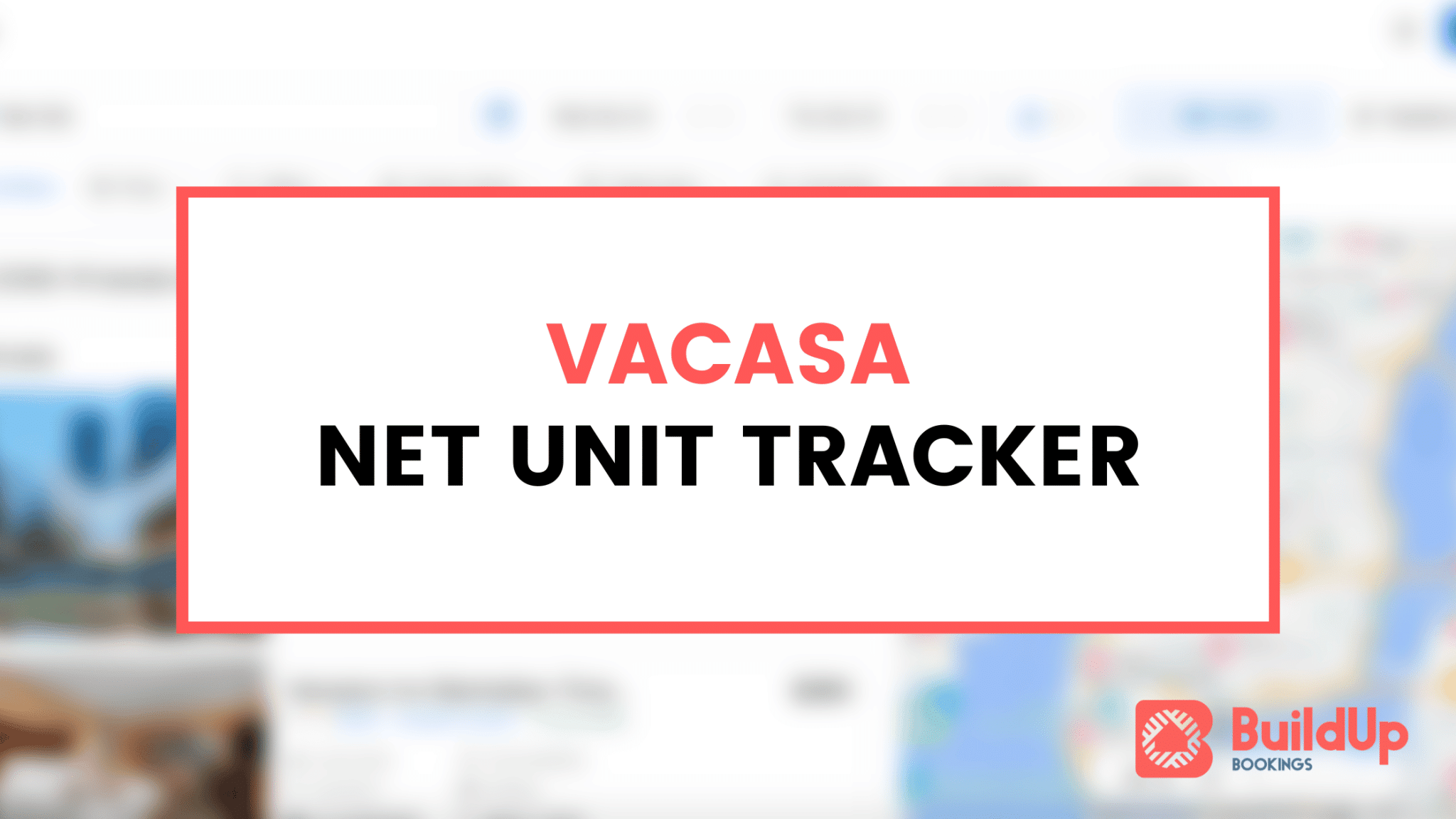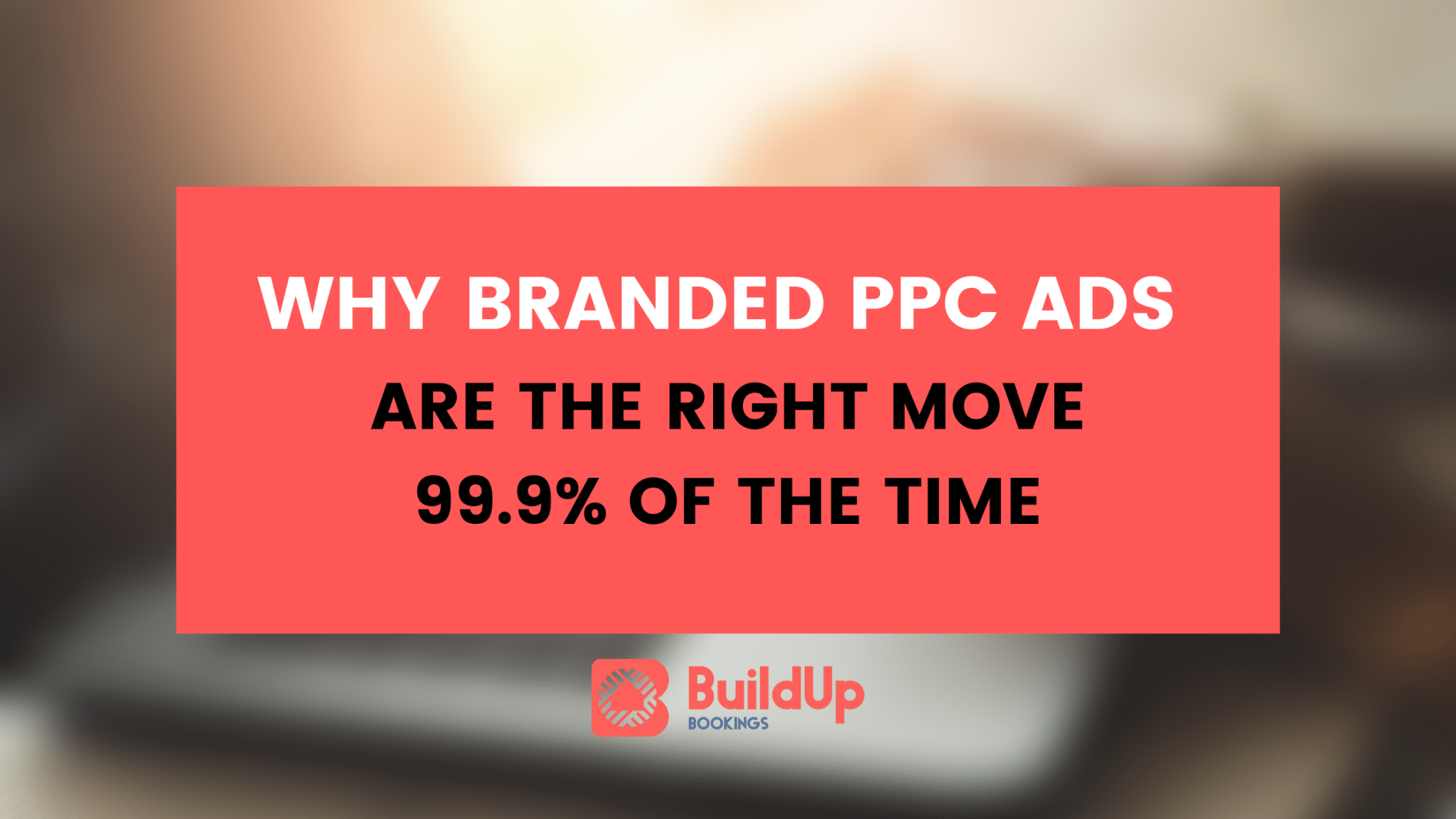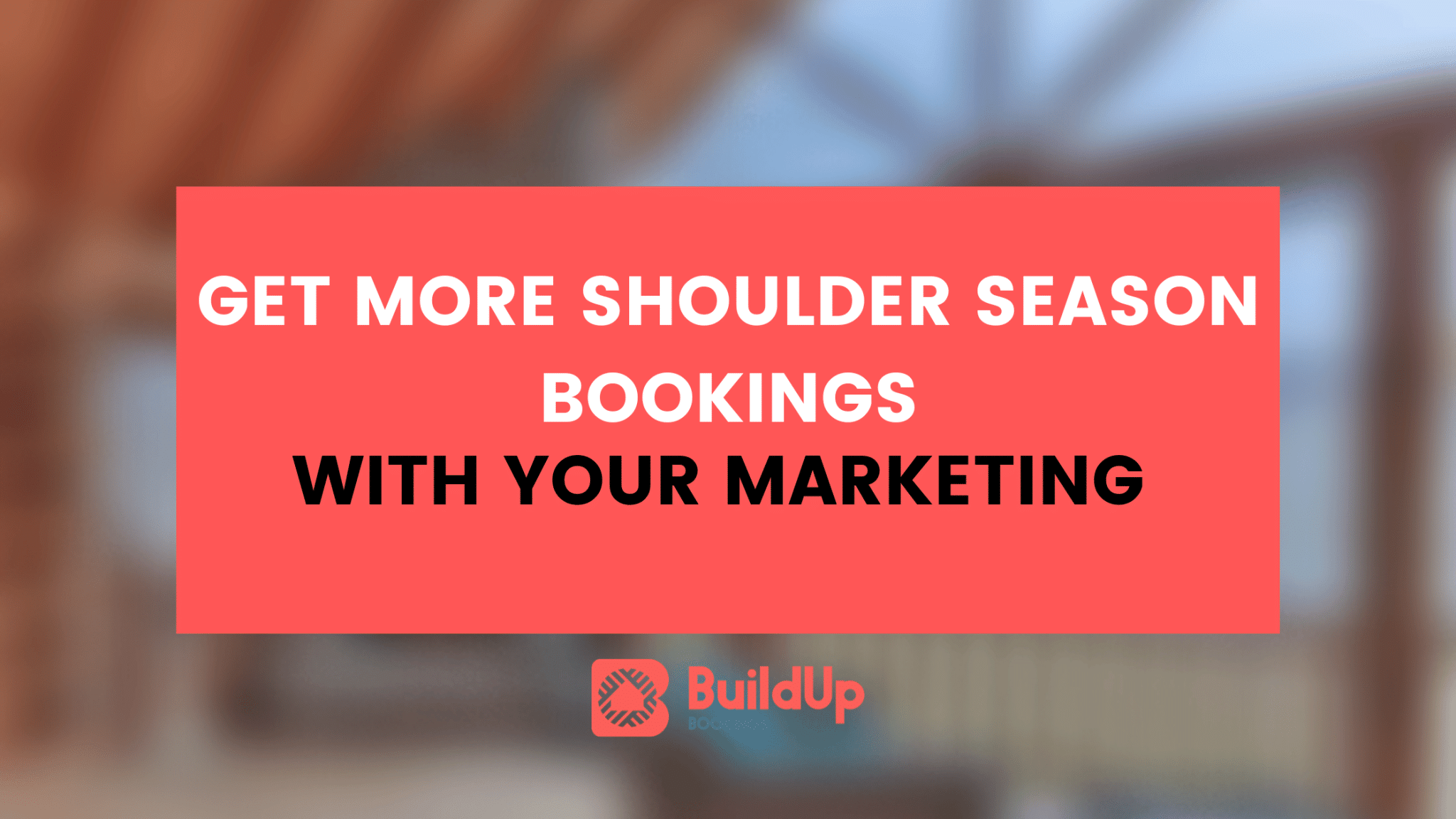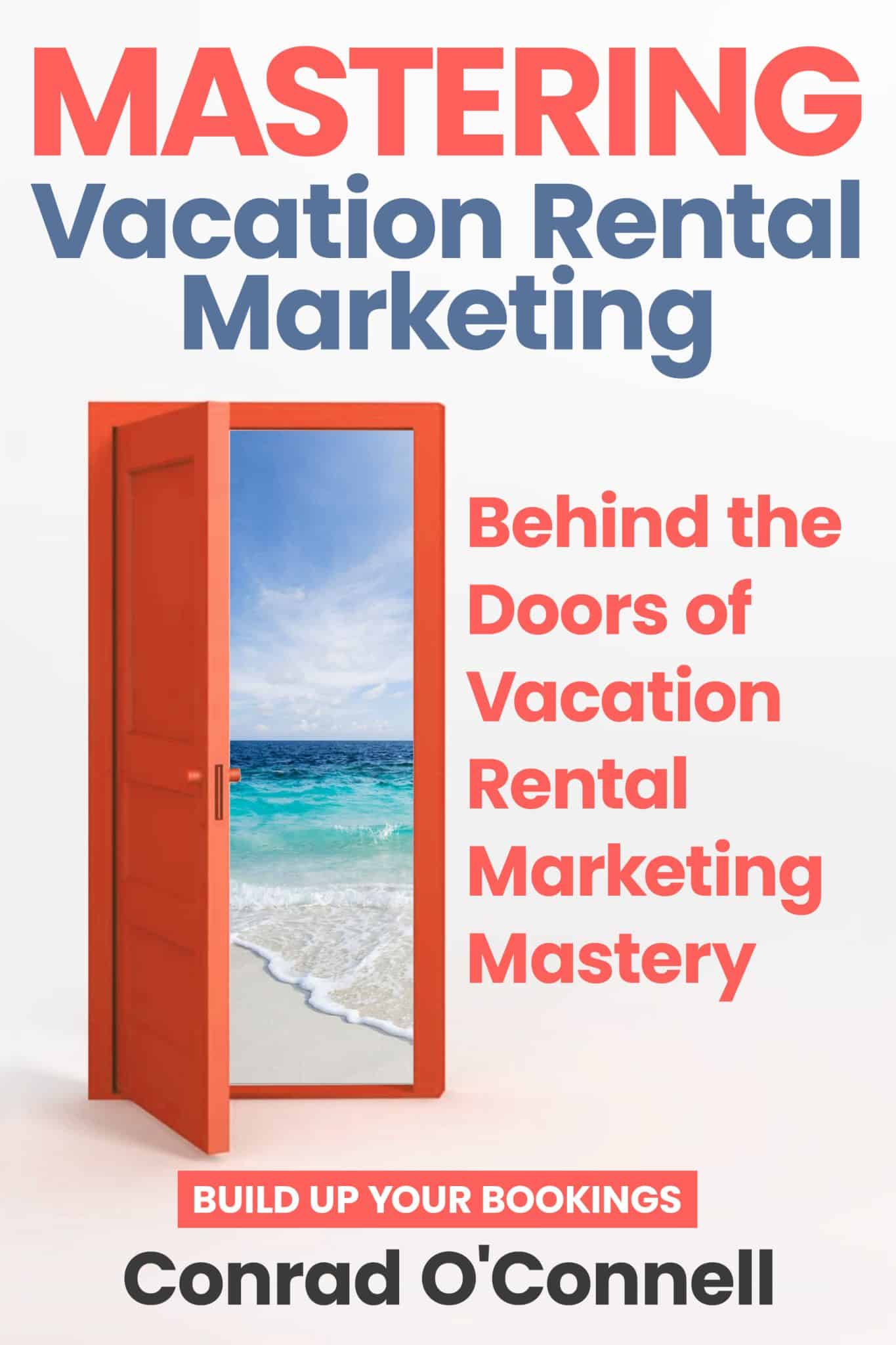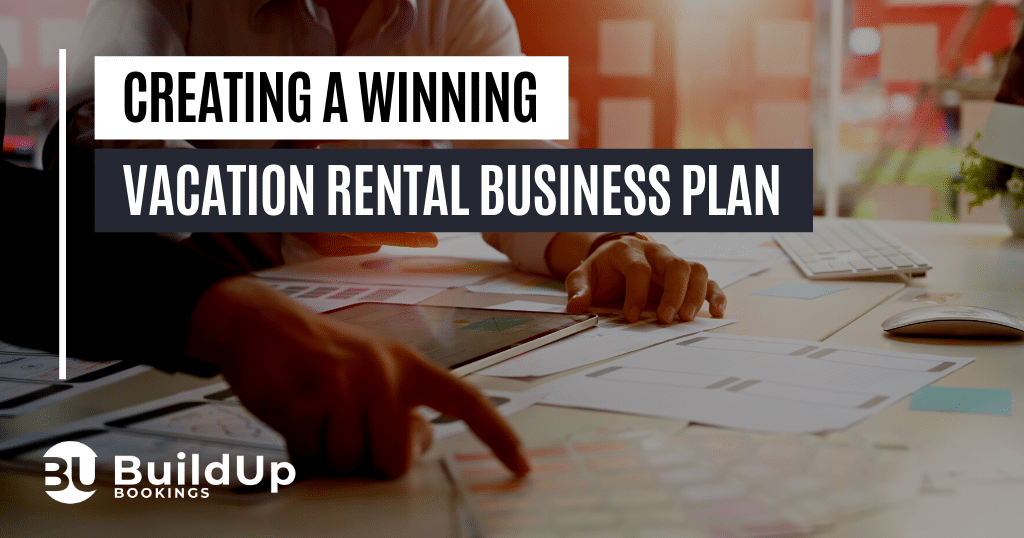
Choosing to invest or manage vacation & short term rental properties is a business that can be rewarding and profitable. As with any business idea, developing a business plan is a valuable first step to building a successful business. With a vacation rental business plan, you can see the pros and cons of starting what could be a profitable opportunity.
Vacation rentals have several expenses, including maintenance, taxes, marketing, utilities, and cleaning costs. Before investing in a vacation rental business, look closely at how the both owning and managing properties will affect your taxes. You should also look closely at how much time you have to give to the business. You should include all of these factors in your vacation rental business plan.
Taking the time to write and analyze a vacation rental business plan helps you make a smart decision. Starting a business is exciting and stressful, so having some expectations about what can go right and wrong is helpful. Use this guide to develop your plan before you invest in vacation rentals.
What is a Business Plan?
A business plan is a document that includes the framework, strategies, and goals you have for a business you are considering investing in or building on your own. Investors and banks usually ask to see business plans when deciding whether or not to loan money to new businesses and startups. Each plan should include details about finances, costs, employees, and procedures.
Before you invest in your first vacation rental property or manage listings for other property owners, you should write your investment plan so you can purposefully envision your future as a vacation rental business owner.
What To Include In Your Business Plan?
Each business plan follows a similar structure. Depending on the type of business, there could be some different goals or sections that you should expand. For example, a business plan for purchasing rentals might look very different than a plan to manage vacation rental properties for other property owners. This template can help you organize your business model and plan to maximize your chances of success.
Corporate Summary

Each business plan needs to have a corporate summary. This is the short version of your business plan. It does not require a plethora of details, as those come later in the document.
As you craft the corporate summary for your vacation rental business, you should ask yourself a few key questions. Most future business owners write the synopsis first or last – after considering the problems in the body of the plan.
The key questions should answer who, what, when, where, why, and how.
- Where will I buy/manage my vacation properties?
- Who will stay in them?
- How will I market them?
- How much can I charge per day, per week and per month?
- What is the average demand in my area yearly?
- What type of properties will I buy?
- Why do I want to buy these properties?
- When will people want to stay in them?
- Will I offer long-term, mid-term or short-term rental stays?
You can always make changes to the summary as you work through the rest of the plan. But, writing the summary and creating questions is an excellent place to start. As you ask yourself questions, pay attention to the other problems that arise in your mind. Write them down, so you don’t forget them.
Helpful Resources
- Airdna – Research rates and market demand.
- Google Trends – Find destinations with expanding search interest.
- SimilarWeb – Look for local websites with high + growing website traffic.
- Mashvisor – Calculator tool for measuring the ROI of each property.
Industry Analysis

Before investing in vacation properties, it is helpful to analyze the rental industry. Vacation rental properties might be in high demand in some communities, but not in others. Look at the prices to buy the properties, what the taxes are, and how much guests are paying to stay in them. Find out how many are sitting empty during busy seasons and when the low seasons occur.
As you investigate the industry, figure out where you can spend your money wisely. Then ask more questions:
- How will you stand out from the competition?
- What makes your properties unique?
- What attractions are nearby?
- What onsite activities are available?
- What offsite activities are available?
- How will I advertise?
- Do renters need a car, or is the property close to public transportation?
- What central transportation hub is nearby?
- What restaurants or grocery stores are nearby?
- Will I adjust my rental rates during different seasons?
- What is the occupancy in my rental properties?
- What rules should I establish for my rental properties?
- Do I need to hire a rental management company?
- What will my pricing strategy be?
- What competition will I have?
As you write your plan, pick some properties that are already established and successful. Include a few properties in your plan with their rates, amenities, location pros and cons, seasonal occupancy rate, and anything else that applies to your goals for your future business. Then, analyze what your unique selling points will be.
Competitor Analysis

Knowing the industry matters, and so does knowing your immediate competition. To analyze the competition, choose a part of your plan and analyze the competition on a site like Airbnb, Booking.com, Tripadvisor, or Vrbo (formerly HomeAway). This is like an industry analysis but on a much smaller scale.
For example, if you plan to buy a cabin in the Rocky Mountains, you will want to look at other nearby rental cabins. You begin by asking questions:
What are the Other Owners Charging Per Night?
- Cabin 1: $150
- Cabin 2: $165
- Cabin 3: $140
What are the Cabins Like?
- Do they have amenities like hot tubs or garages?
- What kind of views do they offer?
- How far is the cabin from town?
- How are the cabins furnished?
- How many bedrooms do they have?
- Are the cabins luxurious? Rustic? Somewhere in between?
- Do they offer WiFi? Laundry? Smart TVs?
How Do the Locations Vary?
- How long is the drive?
- Is the cabin close to a city or town?
- What activities are nearby? (Hiking, canoeing, skiing, off-roading, etc.)
- How close is the cabin to transportation hubs?
After analyzing the closest competition, you can determine how successful your vacation rental businesses can be.
Guest Analysis

After you analyze the industry, the next step is to analyze your potential guest demographic. To do this, you should create a buyer persona, which is your ideal guest. Make the potential guests as real as possible with names, careers, education, ages, and vacation goals. You might even decide to market to business travelers.
Along with these essential components, you should also look at what your ideal guest likes to do while on vacation. Does your guest like to go to the beach or the mountains? Does your guest like to travel with immediate or extended family? You should also consider your ideal guest’s spending habits while on vacation.
As you are analyzing your guest, consider the locations of the properties you are considering. Some properties do not allow children. Some do not allow people under age 55 to stay there. Some will not allow people under 25 to reserve the property. Other properties do not allow short-term rental business.
Some vacation rental business plans also include the potential pitfalls of ideal guests. What type of complaints could you envision your guest having? Then, consider what will continue to keep your ideal guest happy, so they return and tell their friends.
Marketing Plan

Your vacation rental marketing strategy plays a massive role in your success over the long term. Advertising on vacation rental websites is affordable and is a great way to earn your first 10 bookings for each property, but long term you’ll want to earn direct bookings and be able to drive guests to your properties via the three core pillars: search, social and email marketing.
Your marketing strategy should reflect the guests you expect to stay in your properties. If you are marketing to snowbirds, you will need to advertise in the winter because your properties need leads to thrive and earn bookings. If you are marketing to college students, you may consider using niche listing sites or offering monthly rates on Airbnb to maximize bookings.
Need help generating your vacation rental marketing business plan? Get in touch with our team.
Joining the OTAs
Many vacation rental businesses advertise on online travel agencies (OTAs) like Airbnb, Expedia, or Vrbo. These listing sites charge for ads and rentals. Many vacationers only use these sites, so you could be losing a large rental market if you aren’t on them.
If you plan to market your property on the OTAs, you will want to research other properties in your market. Look at their rates, amenities, and photos. It is nearly impossible to get renters into an Airbnb if you do not have outstanding photographs. So, you will need to find someone who can take them for you.
Before you commit to listing on an OTA, ask yourself a few questions:
- What is the cost? Is it worth it, or does the fee take too much of your profit?
- How are the fees billed?
- Do you have to sign a contract? For how long?
- How do renters pay? How do you get paid?
- What rules must you follow?
- Does the OTA attract your ideal guest?
- Is the OTA website intuitive? Or is it too much to manage on your own?
- Does the OTA make SEO decisions, or do you do that?
- How much automation is involved on the website?
Services Offered

Your strategic plan should include the type of services you plan to offer. You will have complete control over whether your experience will be basic, full-service, or luxurious. Some Airbnb owners stay on the property and serve as superhosts, while others are completely hands-off and let a property management company take control.
Included in the services are the amenities and furnishings you provide. If you expect your guests to stay for more than a few days, you should provide a washer and dryer or have nearby laundry services. If your renters only stay for a few days, you will want to have a high-quality cleaning service.
Your price point should reflect the type of accommodations you are offering. If you have luxurious amenities, you can charge an extravagant price and you should also offer full-time host services. If you don’t have elegant furnishings, then your rates should not be too high for the people who will stay there.
Operations Plan

The best vacation homes have a set of rules for the guests. If you are expecting to hire staff, they will also have restrictions. This plan will help you run your properties daily. You will need to have a plan for administrative duties, maintenance expenses, and inventory. This is the opportunity to get your business ideas out of your head and onto paper.
Even if you only have one small property, you need an operations plan. This will keep your business at a level that you and your guests appreciate. Having a plan makes it easier to expand and still maintain your standards. With an operations plan, you can determine what you can do on your own and what you will need to outsource.
The location of your property affects how much outsourcing you will need. If the property is far from your home, you will need to hire property managers to take care of:
- Housekeeping
- Laundry
- Landscaping, mowing, snowplowing
- Repairs and maintenance
- Hosting and local management
Other operations can be done remotely. Those include:
- Bookings and calendar management
- Accounting and financial reporting
- Marketing and advertising
- Customer & guest service
If you decide to hire staff, you will have to figure out how to hire them, how to pay them, and who will take care of those details. You might be able to hire someone through a local agency or hire a firm to manage the entire property, both inside and outside. You will need to make these decisions and figure out what they will cost.
Financial Details

When you decide to invest in vacation properties, the ultimate goal is to make money. An essential part of the vacation rental business plan is the financial plan section, where you look closely at revenue and expenses.
In this section, you look at where the vacation homes bring in revenue and what expenses exist. When you build this section, you look at the monthly expenses and income. Many startups recognize that they might not turn a profit for the first few months.
Investors recognize that entrepreneurs have learning curves in their new industries, and they tend to figure them out quickly. However, there are several costs to consider as you determine the financial viability and cash flow of your investment idea. They include:
- Mortgage payments
- Taxes – federal, state, local, and lodging/tourism
- Maintenance expenses
- Marketing costs
- Payroll
- Insurance
- Utility bills like water, electricity, gas, cable/satellite, internet, garbage
- Association expenses
- Furnishings
- USPS costs
Some of these expenses are fixed, so you know exactly how much you will pay each month. But some expenses, like maintenance and utilities, can vary from month to month, so it is helpful to estimate at the high end.
After you figure out how much you have to spend each month, you can establish your daily or weekly rental rate.
For example, if you have one rental property that costs $2000 for all of your expenses, you will need to charge enough to cover that cost and give you profit. Therefore, you might want to charge at least $150 per night. If you only fill 60% of your potential nights, you will profit from $700 per month.
Many vacation rental property owners have different rates during the high and low seasons. You might charge more during the peak seasons because properties fill up quickly. But, you might entice vacationers to stay in your property during the slow times by charging an affordable rate. Use the peak rates to cover the quiet times.
If you are presenting your plan to a financial organization, you will want to include details about finances. You will want to show the financial organization how you will stay open for the first few months. The financial organization will want to see your personal finances to ensure you can afford to run the business before it becomes profitable.
You will also want to explain what you will do if the business is slow to grow and whether you have a back-up plan. The financial institution will also want to see how you plan to cover unexpected costs, like replacing furnishings. They might also want to know what your next level up will be if you find success in this new business.
Achieving Your Vacation Rental Business Goals with a Solid Plan
Your plan is the general guide to how you will run your short term rental / vacation rental business to make a profit. This framework will help you organize your thoughts into a working plan so you can actually see your vacation rental property business come to fruition.

